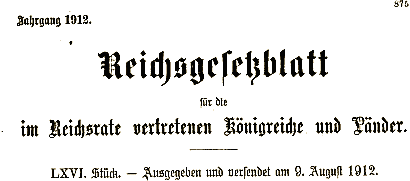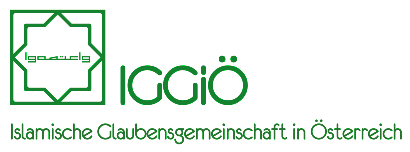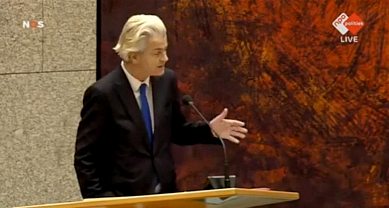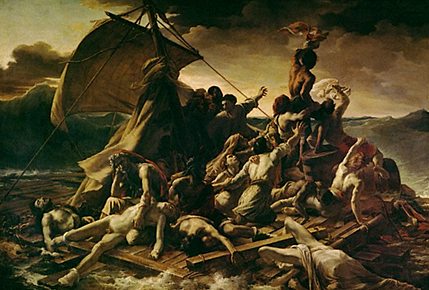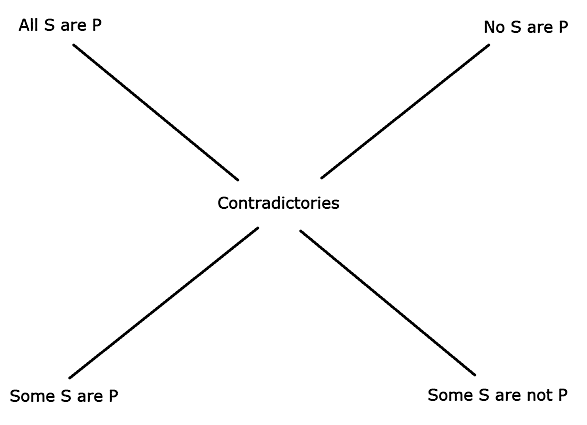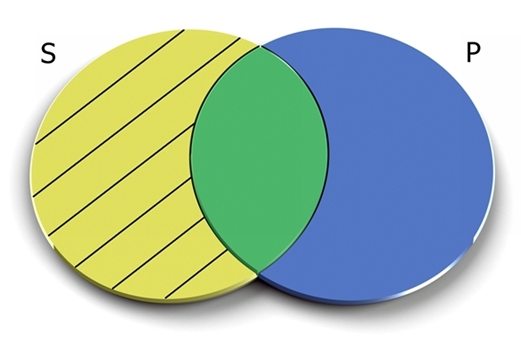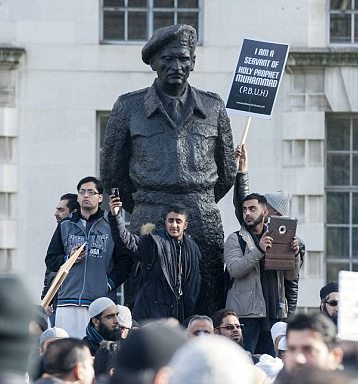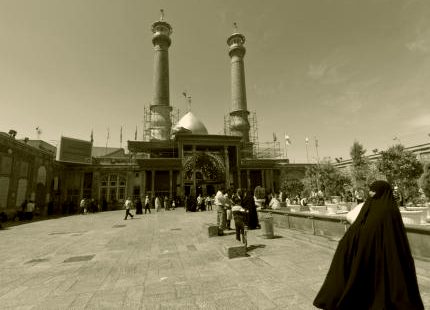The Original Law, and the Proposed New Law
Words cannot express the gratitude the Wiener Akademikerbund (WAB) extends to Rembrandt Clancy and JLH for their tireless and dedicated work in translating this mass of very difficult legal material. The task was truly an epic challenge for both translators, and we congratulate them on a job well done. Vielen Dank!
Elisabeth Sabaditsch-Wolff
Vice Chairman of the Board, WAB
Introduction
The Austrian Law on Islam is unique in all of Europe, perhaps even worldwide: Islam, along with other major religions such as Catholicism, Protestantism, the Jewish faith, Buddhism, and others, is granted a special status within the legal system. Not only that, but the taxpayer also foots the bill for imams, religious education, and other matters. (This also concerns all other legally recognized religions.)
The original law was necessitated by the Austria-Hungary’s annexation of Bosnia-Herzegovina at the beginning of the 20th century: the incorporation of Hanafi Muslim soldiers into the Austrian army demanded that the Hanafi school of Islam be legally recognized. Little did the authors of the law know that nine decades later this very law would be the cause of so much discussion.
The main point of discontent has always been the lack of disclosure of the tenets of the faith by the Islamic Faith Community, as demanded from and adhered to by all other faith communities. Thus, official Austria does not know what faithful Muslims believe in. This has resulted in the ridiculous situation that numerous Islam-critics have been convicted for “denigration of religious beliefs of a legally recognized religion” while the state has no idea what these teaching comprise!
The Austrian think tank Wiener Akademikerbund (WAB) has for many years now been very vocal in calling out the ruling elite about the challenges Austrians face with regard to the ongoing Islamization of Austria. The resulting vilification of WAB has not ceased. However, given that Christian Zeitz is the expert on the Law on Islam as well as Islam itself, it was only natural for him to be chosen as an expert witness in the parliamentary constitutional committee discussing the updated Law on Islam.
It was and continues to be our aim and guiding principle — and that of all people critical of Islam — to prevent the propagation of Islam and Sharia law by the law and within the law, i.e. secular law.
Let us back up now and present the original Law on Islam for readers to peruse.
Imperial Gazette — 1912
(Official translation as provided by Language Services and Terminology, Federal Ministry of Economics and Labour-Vienna)
Part II
1. Austria
Imperial Gazette for the Kingdoms and crown-lands represented in the Imperial Council
Year 1912, item LXVI, published and dispatched on this 9th of August, 1912
159
Law dated 15th July, 1912
referring to the recognition of the adherents of Islam according to the Hanafite rite as religious community
In agreement with both chambers of the Imperial Council I herewith order as follows:
ARTICLE 1
The adherents of Islam shall be granted recognition as religious community in the kingdoms and crown-lands represented in the Imperial Council in the meaning of the Constitutional Law of 21st December, 1867, Imperial Gazette No 142, in particular article 15, under the following terms:
Section 1
The external legal conditions of the adherents of Islam shall be regulated on the basis of an autonomous administration, due consideration being given to state supervision by way of ordinances once the foundation and existence of at least one religious community has been achieved. Particular attention shall be paid in this respect to the relations of the religious organisations of the adherents of Islam living within the country with those in Bosnia and Herzegovina. A religious community having been established, the creation of charity foundations for religious purposes of Islam shall be permitted.
Section 2
In agreement with the Minister for Cultural Affairs also religious functionaries from Bosnia and Herzegovina shall be permitted to be appointed to the office of a religious servant.
Section 3
If a disposition of the organiser of a religious service is, in the opinion of the government, contradictory to public considerations, such service may be prohibited.
Section 4
A religious servant found guilty of a criminal offence or punishable act, committed for pecuniary benefits, in violation of morality, or constituting a public nuisance, or whose contact threatens to endanger public order, shall be removed from office.
Section 5
The state authority shall see to it that the religious community of the adherents of Islam, their communities and organs do not exceed their scope of activities, meet the requirements of the law and of the envisaged ordinances on the external legal conditions of this religious community, and enforce the ordinances promulgated on this basis, apply fines tailored to their financial means and other legally admissible coercive measures.
Section 6
The religious community of the adherents of Islam according to the Hanafite rite shall, both as regards the community as such and religious worship and religious servants, enjoy the same legal protection as is granted to other legally recognised religious communities.
The doctrines of Islam, its institutions and customs shall enjoy the same protection too, unless they are in contradiction to state law.
Section 7
As regards marriage of the adherents of Islam and the keeping of the registers of births, marriages, and deaths, the provisions of the Law dated 9th April, 1870, Imperial Gazette No 51, shall remain in force.
Religious obligations in respect of marriage shall not be affected by these provisions.
Section 8
A respective ordinance shall stipulate if and how religious servants of Islam may be employed to assist with the keeping of the registers of births, marriages, and deaths of their fellow believers.
Article II
My Minister for Cultural Affairs and Education, my Minister of the Interior, and my Minister of Justice shall be entrusted with the implementation of this law.
Bad Ischl, on this 16th of July 1912
Francis Joseph, m.p.
And here is the new draft law, as proposed and submitted to Parliament (translated from the German by Rembrandt Clancy):
Draft
Federal Act, Amending the Law on the Recognition of the Followers of Islam as a Religious Society [Religionsgesellschaft]
The National Council has decided:
The Act on the recognition of the adherents to Islam as religious society, RGBl [Imperial Law Gazette] I Nr. 159/1912, last amended by the Federal Ministries Act Amendment 2014, BGBl. [Federal Law Gazette] I Nr. 11/2014 shall be amended as follows:
Continue reading →
 The United States, Britain, and France have closed their embassies in Yemen and evacuated diplomatic personnel. All three countries plus Italy have advised their citizens to stay away from Yemen, due to the ongoing political crisis. The situation in the country has been chaotic since the Sunni government was toppled a few months ago and replaced by a Shi’ite regime under the Houthi rebels.
The United States, Britain, and France have closed their embassies in Yemen and evacuated diplomatic personnel. All three countries plus Italy have advised their citizens to stay away from Yemen, due to the ongoing political crisis. The situation in the country has been chaotic since the Sunni government was toppled a few months ago and replaced by a Shi’ite regime under the Houthi rebels.

